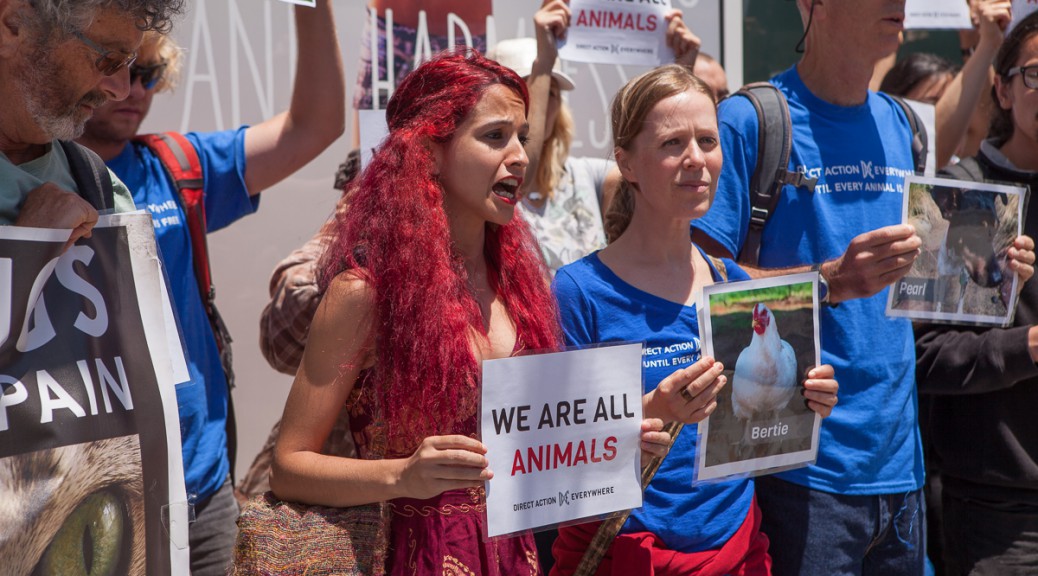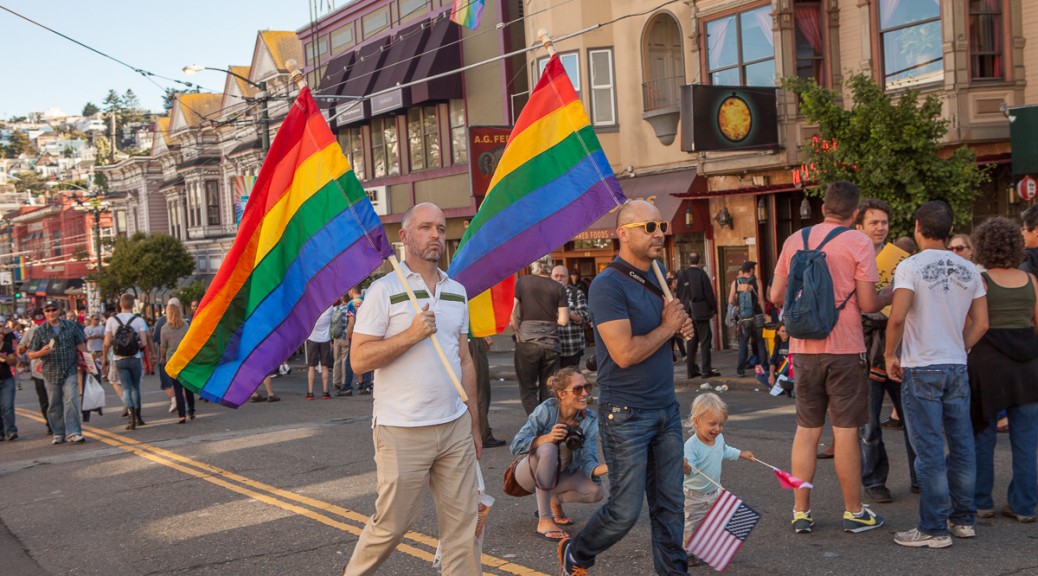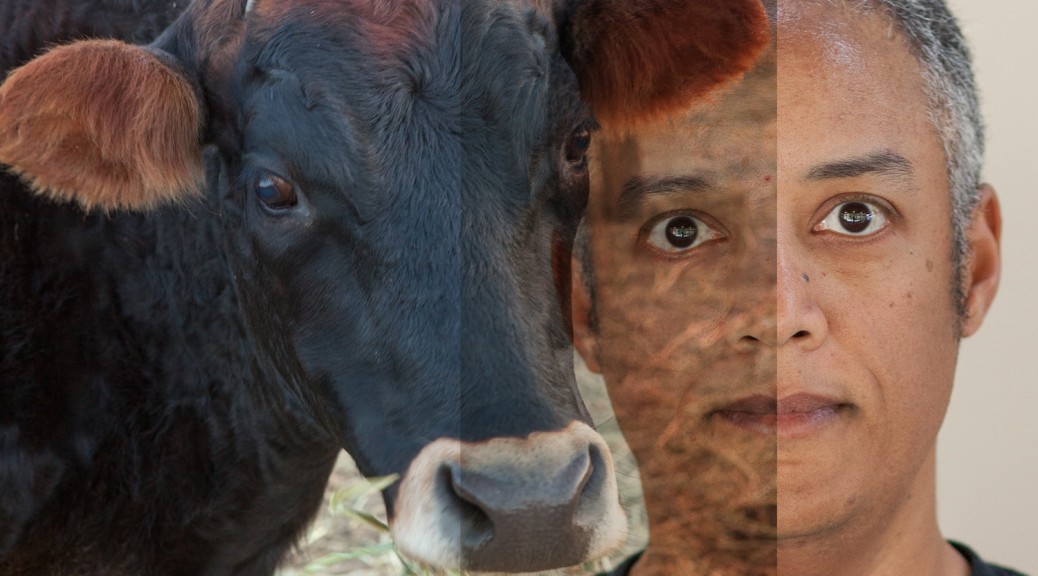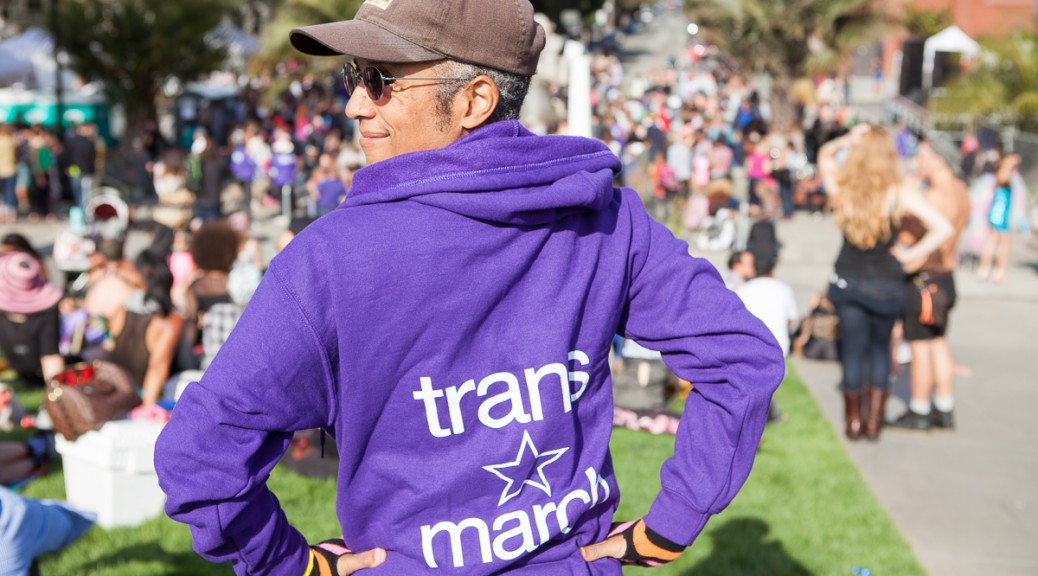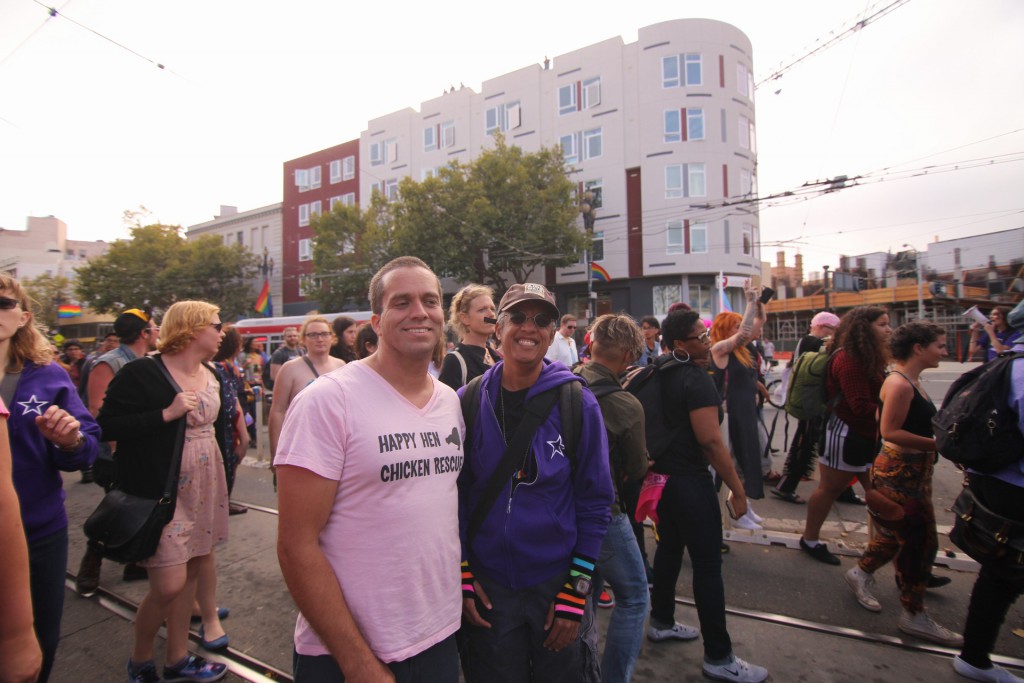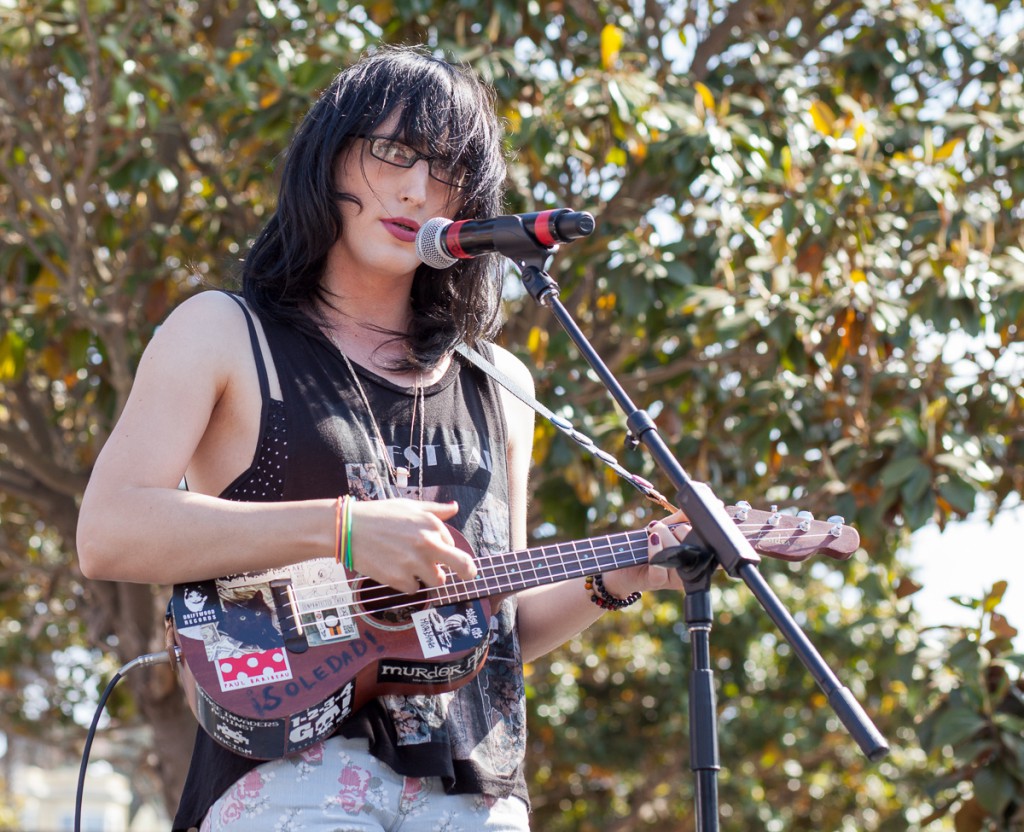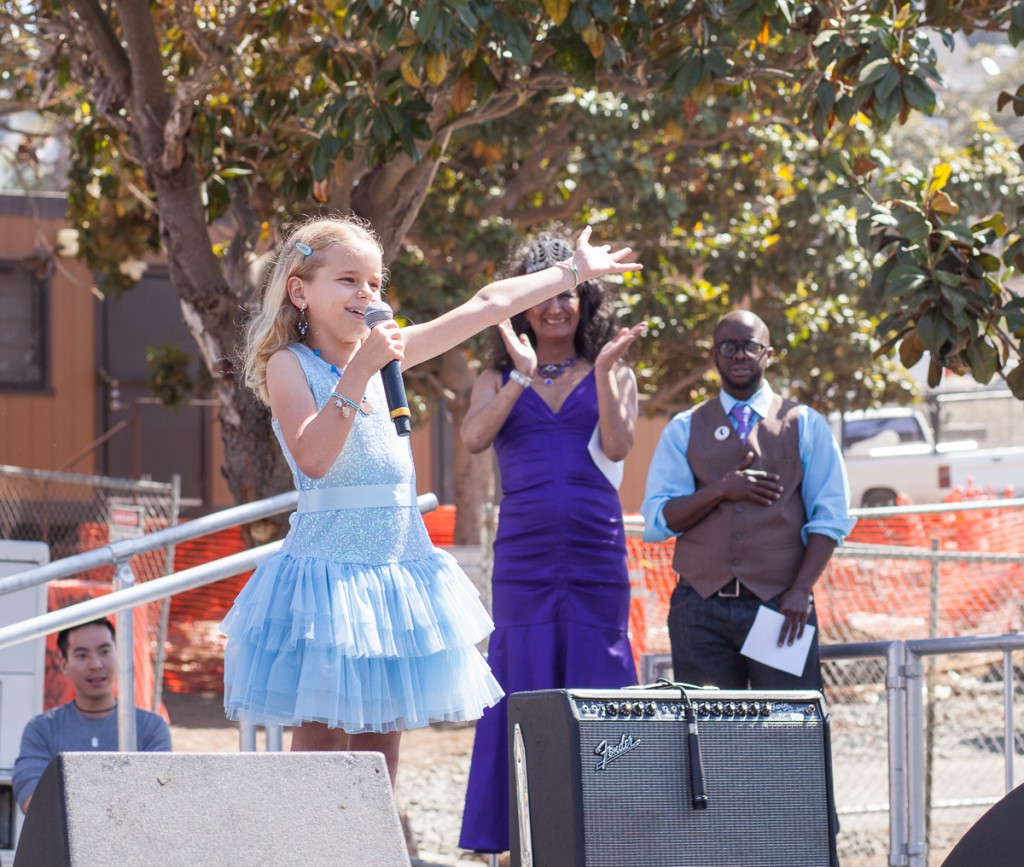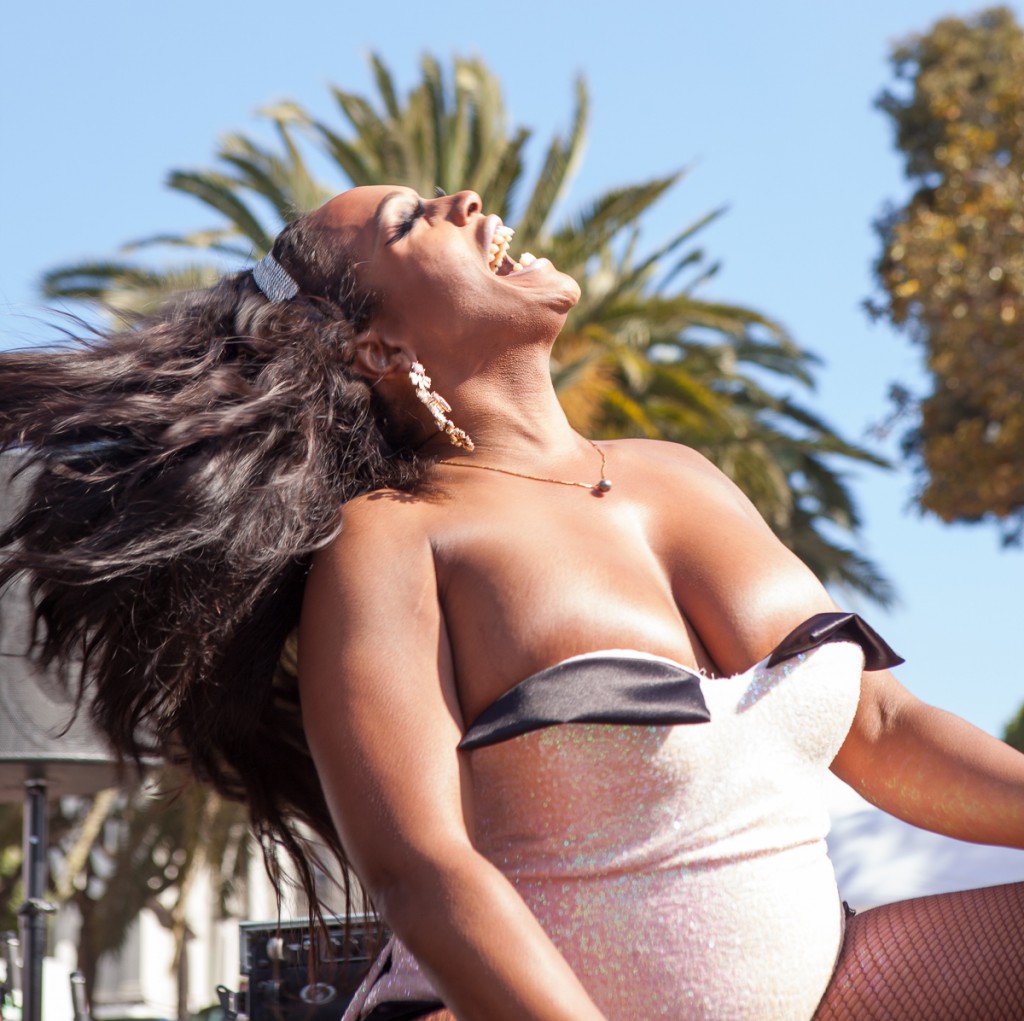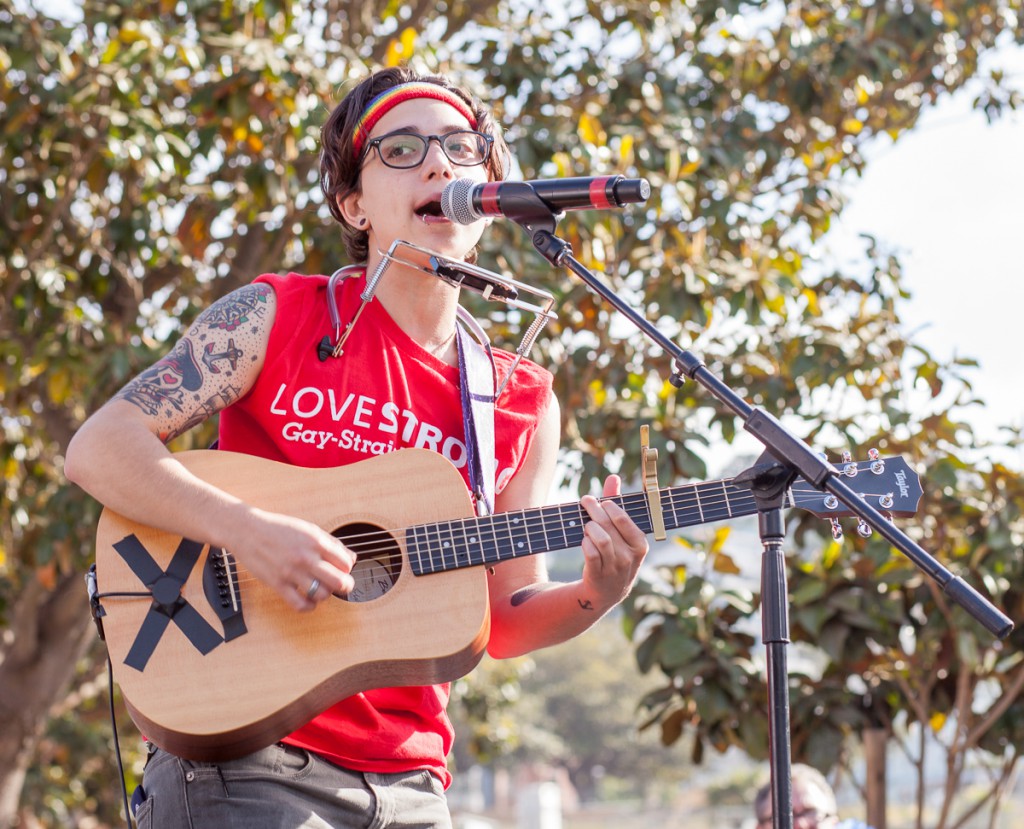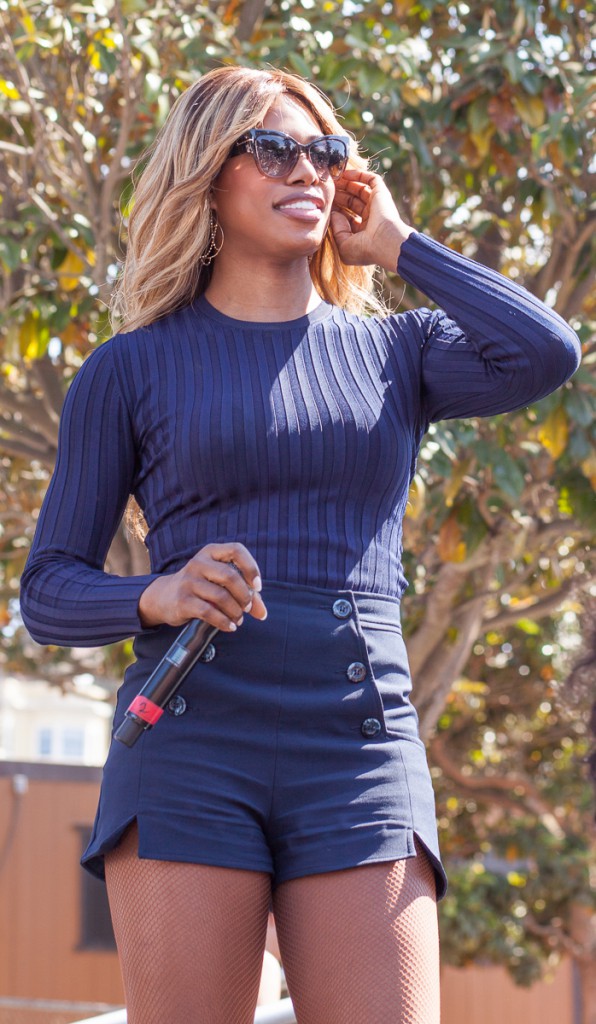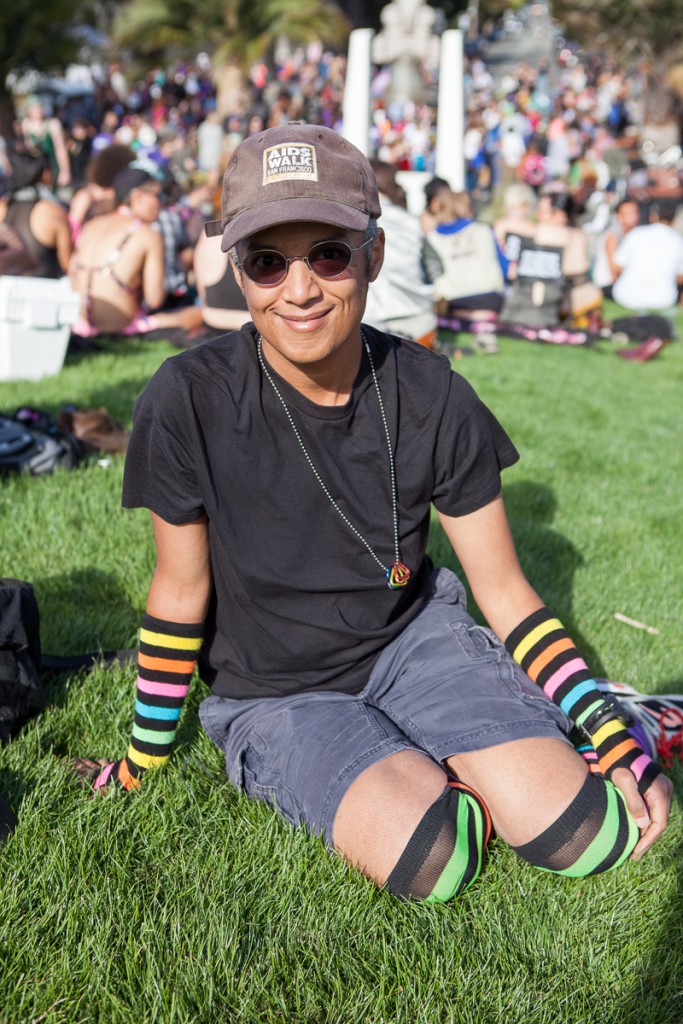[Image: A group of people holds up signs with photos of animals, the words “WE ARE ALL ANIMALS”, and the Direct Action Everywhere logo.]
Update, July 2016: Since publishing this post I have left Direct Action Everywhere (as has Saryta Rodriguez, who is in the top center of the above photo.) My points about animal liberation and the intersections of oppression still remain.
Yesterday my partner and I participated in an action with Direct Action Everywhere. I’ve been involved with this animal liberation group for about a year now, ever since having a falling out with Gary Francione, whose writing first got me interested in becoming an animal rights activist. Though I’ve been vegan since 2011 and vegetarian since 1992, it wasn’t until last year that I was convinced I should actively speak out against animal exploitation. Welfare reform isn’t the answer, as “humane farming” is a myth. The answer is abolishing the property status of animals, or to put it in a more positive way, animal liberation.
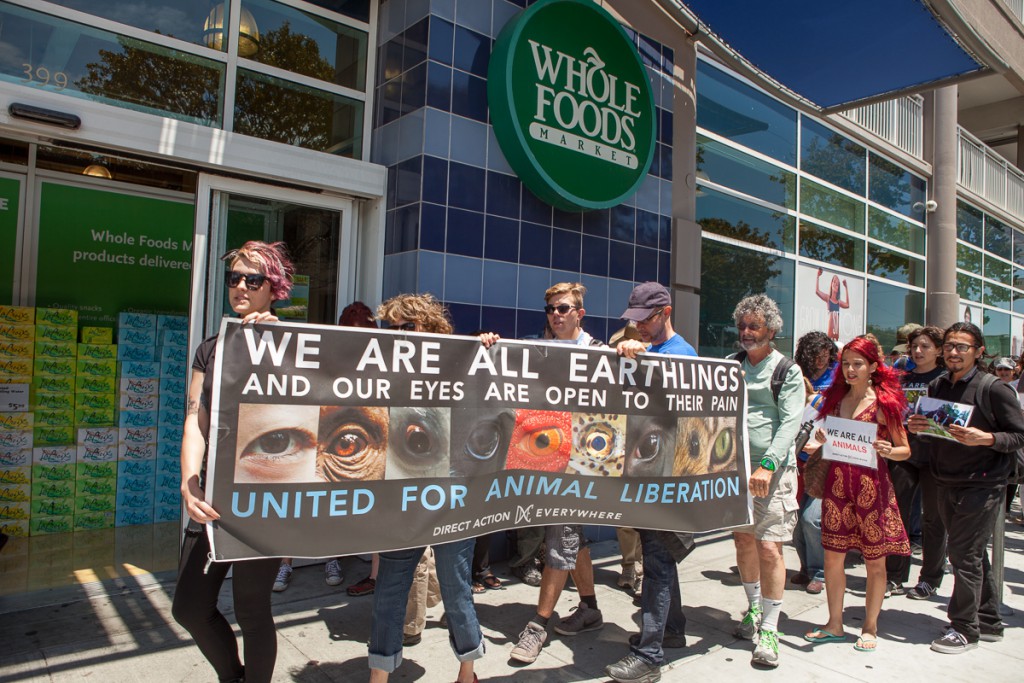 [Image: A group of people marches outside a Whole Foods Market, carrying a colorful banner reading “WE ARE ALL EARTHLINGS” and featuring the eyes of human and non-human animals.]
[Image: A group of people marches outside a Whole Foods Market, carrying a colorful banner reading “WE ARE ALL EARTHLINGS” and featuring the eyes of human and non-human animals.]
I like Direct Action Everywhere (DxE) because the people I’ve met in that community are more diverse and outspoken against human oppression than many of those in larger animal rights organizations. I’ve learned that all oppression is interconnected, including racism, sexism, heterosexism, cissexism, ableism, and speciesism. I won’t support animal rights groups or individuals who use sexist campaign tactics, like PETA, or say hateful, violent things about women or ethnic groups, like Gary Yourofsky. The ends do not justify the means.
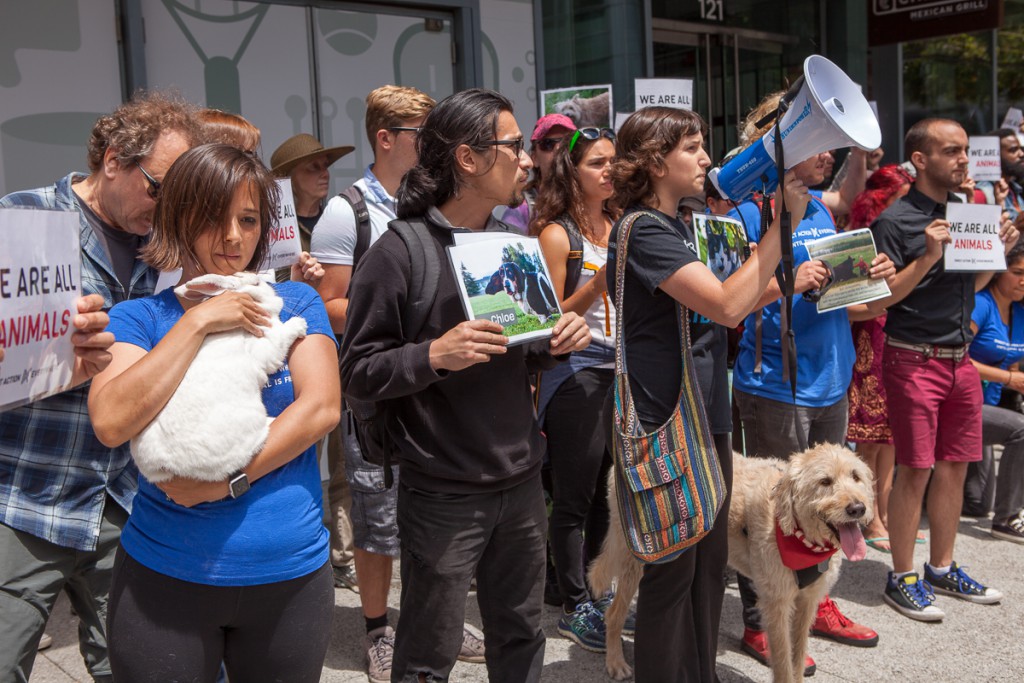 [Image: A group of people hold signs with photos of animals and the words “WE ARE ALL ANIMALS”. A woman in the foreground holds a white rabbit. Another woman speaks into a megaphone, a large dog standing next to her.]
[Image: A group of people hold signs with photos of animals and the words “WE ARE ALL ANIMALS”. A woman in the foreground holds a white rabbit. Another woman speaks into a megaphone, a large dog standing next to her.]
Total animal liberation means everyone, humans and non-humans alike. Other writers and activists outside of DxE who get this include A. Breeze Harper of Sistah Vegan Project, Sarah K. Woodcock of The Abolitionist Vegan Society, lauren Ornelas of the Food Empowerment Project, Corey Wrenn of Vegan Feminist Network and The Academic Abolitionist Vegan, Christopher-Sebastian McJetters of Vegan Publishers, and Will Tuttle, author of The World Peace Diet.
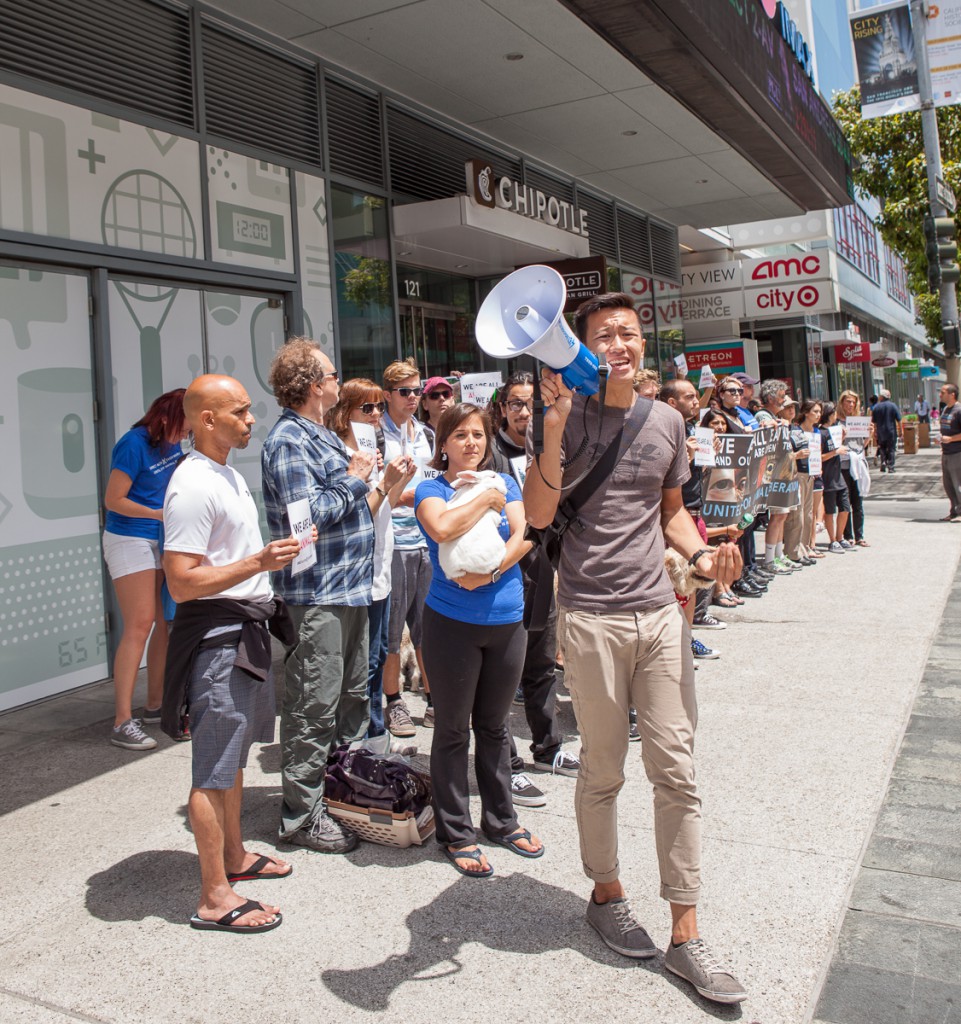 [Image: A group of people stand outside a Chipotle restaurant, holding signs and a banner. In the foreground a man is speaking into a megaphone. Behind him a woman is holding a large white rabbit.]
[Image: A group of people stand outside a Chipotle restaurant, holding signs and a banner. In the foreground a man is speaking into a megaphone. Behind him a woman is holding a large white rabbit.]
As a queer black trans person, I feel safe and respected at DxE. In addition to taking photos at their events, I’ve written several entries for their blog, The Liberationist, on the topics of masculinity and aggression, dairy and racism, and gender identity and respect. I also participated on a DxE-hosted panel of queer-identified activists discussing the links between LGBTQ and animal rights. The organizers and most of the panelists were people of color. It was an empowering experience.
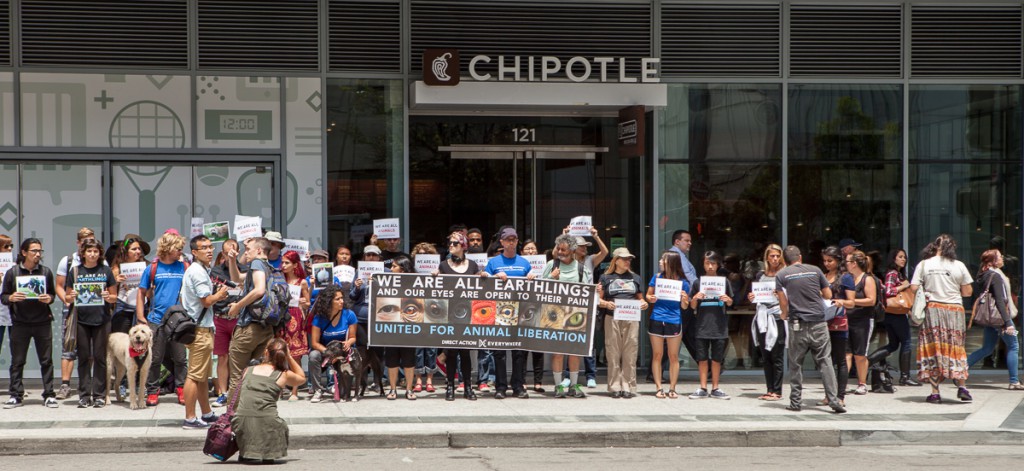 [Image: A group of people stands outside a Chipotle restaurant, carrying signs including a colorful banner reading “WE ARE ALL EARTHLINGS”.]
[Image: A group of people stands outside a Chipotle restaurant, carrying signs including a colorful banner reading “WE ARE ALL EARTHLINGS”.]
Lately, I haven’t been as active in DxE or other animal liberation activities as I would like, as depression and dysphoria have made it difficult for me to leave the house much of the time. I’m glad I made it out to this weekend’s action though, as it was in downtown San Francisco (so I could walk there and back), and I wanted to get photos of the companion animals the activists were encouraged to bring along. I especially couldn’t get enough photos of my friend Lisa with one of her beautiful rabbits, Aster.
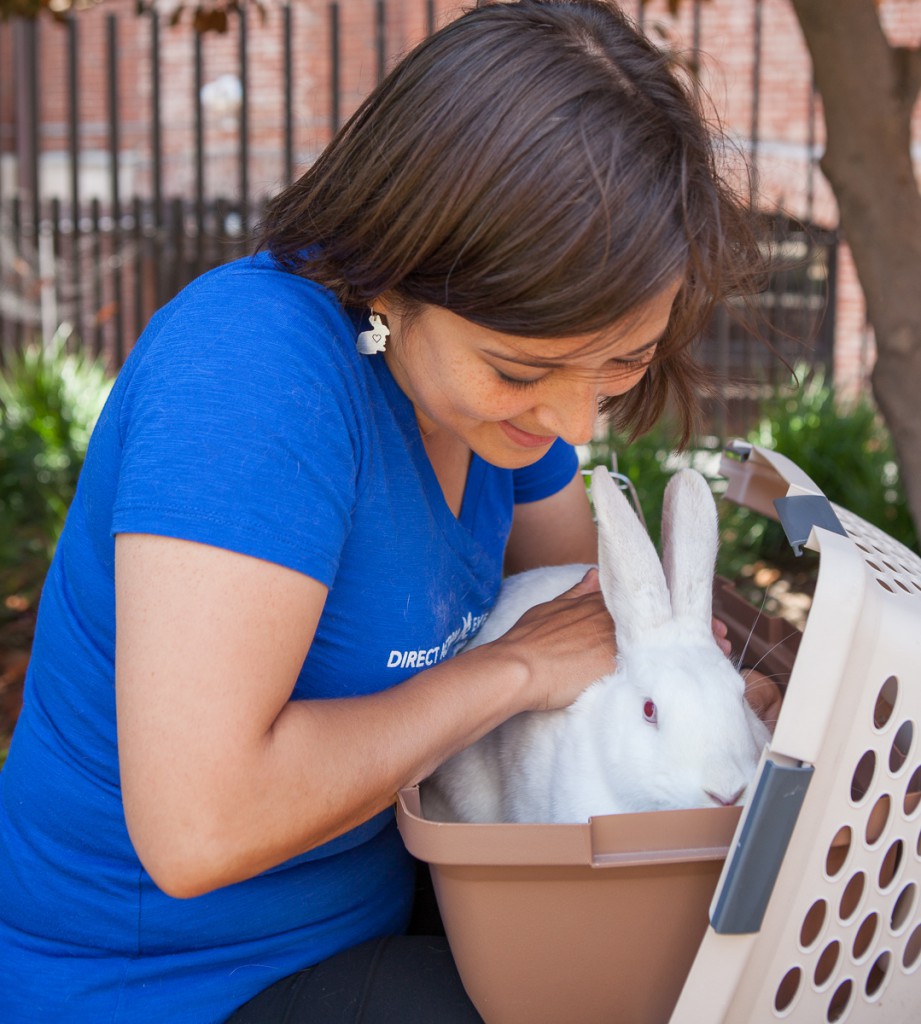 [Image: A woman with straight brown hair, rabbit-shaped earrings, and a blue T-shirt smiles while petting a large white rabbit sitting in a carrier.]
[Image: A woman with straight brown hair, rabbit-shaped earrings, and a blue T-shirt smiles while petting a large white rabbit sitting in a carrier.]
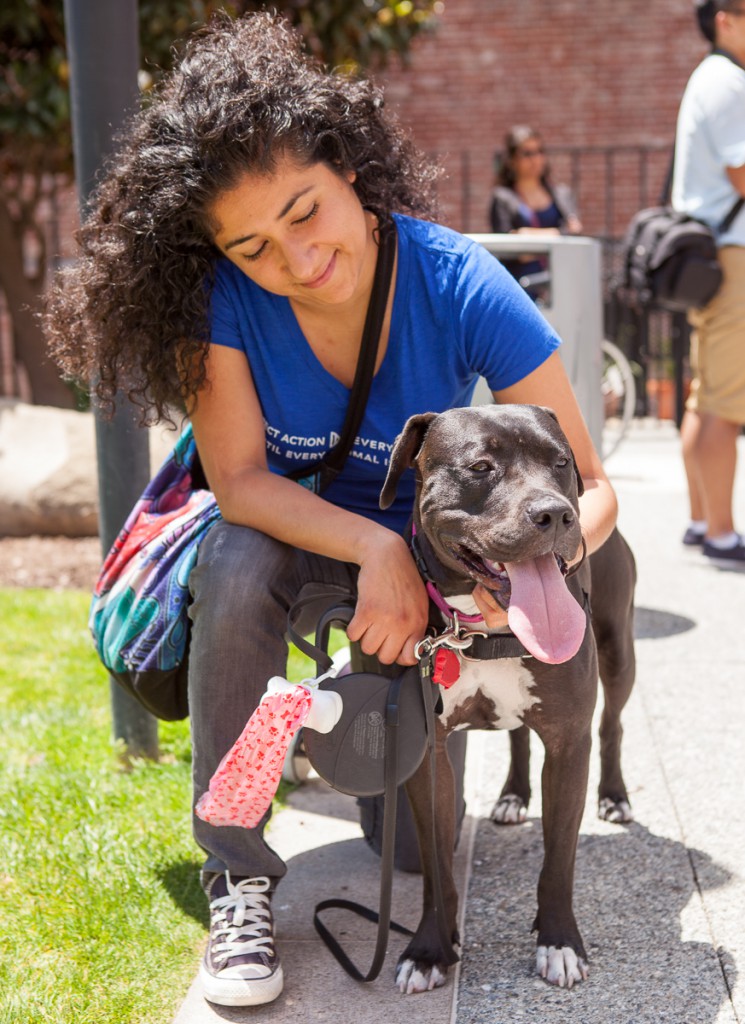 [Image: A woman with curly brown hair and a blue T-shirt smiles while kneeling and petting a large brown-and-white dog.]
[Image: A woman with curly brown hair and a blue T-shirt smiles while kneeling and petting a large brown-and-white dog.]
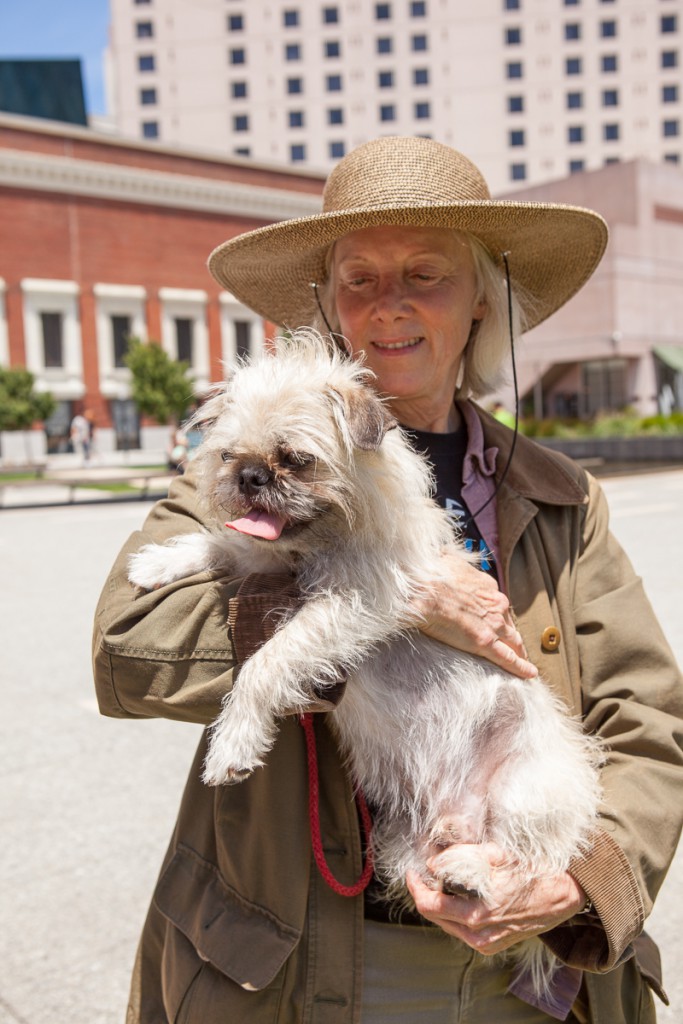 [Image: A woman wearing a straw hat and brown jacket smiles while holding a small white dog.]
[Image: A woman wearing a straw hat and brown jacket smiles while holding a small white dog.]
I’ve uploaded the full set of images to Flickr under a Creative Commons license, so they can be freely shared for noncommercial use with attribution. (I also posted the photos to Facebook, but I’d rather not drive traffic to that organization currently, in light of their harmful, ongoing “real names” policy.) Looking forward to spending more time with my friends, human and non-human, at DxE.
